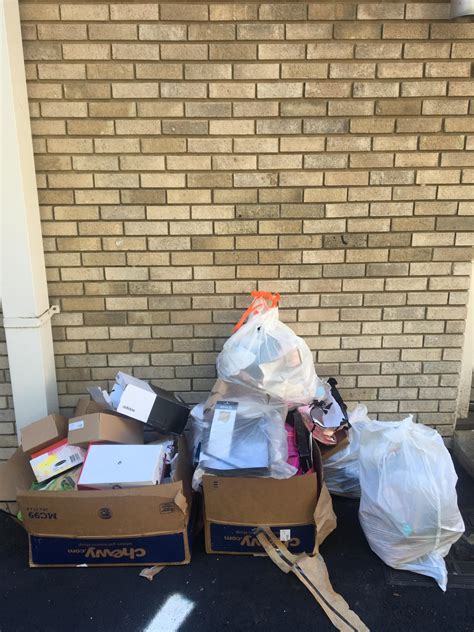How to Get Rid of Boxes in a Weekend: A Conquer-the-Clutter Guide
Moving, renovating, or simply accumulating too much stuff? Boxes can quickly take over your space, leaving you feeling overwhelmed. This weekend, reclaim your home! This guide provides a step-by-step plan to tackle that mountain of cardboard and restore order to your living space. We'll cover everything from efficient sorting to smart disposal, ensuring a clutter-free weekend.
1. The Pre-Game Plan: Assess and Strategize
Before diving in, take a moment to strategize. This will save you time and frustration in the long run.
- Survey the Landscape: Walk through each room and identify all the boxes. Are they mostly empty or full? What kind of items do they contain? A quick inventory will help you plan your attack.
- Gather Your Supplies: You'll need sturdy trash bags (consider different sizes for varying amounts of trash), recycling bins (if applicable – check your local recycling guidelines), markers or labels (for donations or items to be stored), and possibly packing tape for securing full boxes for later use.
- Set Realistic Goals: Don't aim to conquer everything in one day. Break the task down into manageable chunks. Focus on one area or type of box at a time. A realistic goal might be to clear one room or one specific type of box per day.
2. The Sorting Process: Separate, Conquer, Repeat
This is the heart of the operation. Efficient sorting will streamline the entire process.
- Three-Pile System: Create three distinct piles: Trash, Recycle, and Keep/Donate. This clear division will keep your sorting organized and efficient.
- Trash First: Quickly go through each box and dispose of anything immediately trash-worthy – empty, damaged boxes, packing peanuts, etc. Fill the trash bags strategically to avoid overflowing.
- Recycle Next: Separate recyclable cardboard boxes. Check your local regulations for size restrictions and flattening requirements. Many municipalities require boxes to be flattened.
- Keep/Donate Pile: This needs the most attention. Decide what to keep and what to donate. For things you are unsure about, utilize the “one-year rule”: If you haven’t used it in a year, chances are you won't need it. Donate usable items to a local charity, shelter, or recycling center.
3. Dealing with Full Boxes: Contents First
Don't just toss full boxes. You'll save time and space by tackling what's inside first.
- Empty and Assess: Before recycling or discarding boxes, thoroughly unpack each one and organize the contents. This gives you the chance to evaluate what you really need.
- Re-Home Items: Put everything back in its proper place immediately. Don't leave things piled on the floor or table, hindering your progress.
- Proper Disposal: Once emptied, carefully flatten the boxes to conserve space and make recycling more efficient.
How to Dispose of Boxes Properly?
- Recycling: Most cardboard boxes are recyclable. Flatten them and check your local guidelines for proper disposal. Some areas have size restrictions.
- Trash: If boxes are excessively dirty, damaged, or contaminated, they might need to go in the trash.
- Donation/Reuse: Some charities might appreciate sturdy, clean boxes for their operations.
4. The Final Push: Clean and Organize
Once all the boxes are gone, take some time to clean and reorganize.
- Sweep or Vacuum: Clean up any stray debris or dust from the unpacking process.
- Re-evaluate Your Space: Now that you have more space, re-evaluate your organization strategy. Does anything need rearranging? Could you improve storage solutions?
Tips for Avoiding Future Box Buildup
- Shop Mindfully: Avoid excessive packaging whenever possible. Choose stores that offer sustainable options or let you bring your own reusable bags.
- Recycle Immediately: Don't let boxes accumulate. Recycle them as soon as you empty them.
- Designated Storage Area: Create a designated storage area for boxes you need to keep. This prevents them from piling up randomly.
By following these steps, you can efficiently conquer your box clutter and enjoy a tidier, more organized home by the end of the weekend. Remember, preparation and realistic expectations are key to success!

